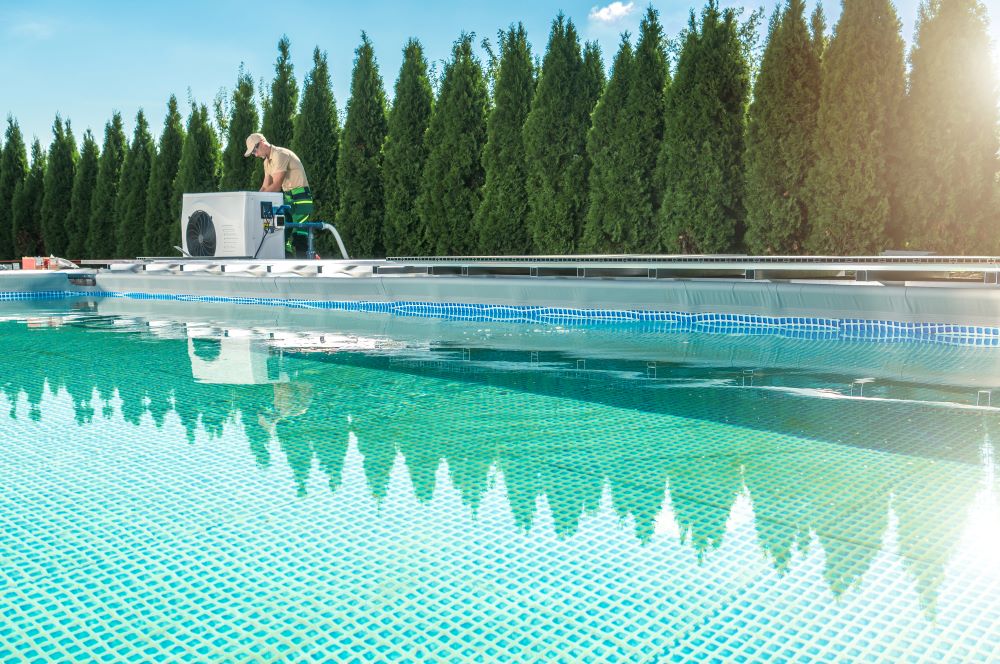Keeping your pool at just the right temperature requires proper equipment. You count on your pool heater for comfortable and reliable temperature control, so you want it to be in the best possible shape.
How long do pool heaters really last? And what are some signs that yours is on its way out? It’s not always clear, but here’s what every pool owner should know about their pool heater’s life span.
The Average Life of a Pool Heater
Most pool heaters last around 10 to 15 years. Your pool heater might last longer with consistent maintenance, but it could break down earlier if it’s not well-kept.
Other factors can also affect your pool heater’s life span:
Your local climate
The manufacturing quality of the heater
The chemistry of your water
You won’t have control over all of these aspects, so it’s essential to properly maintain your heater if you want it to last longer.
Warning Signs of Heater Failure
No pool heater is certain to last a decade or longer; this complex piece of equipment can have problems at any time that could significantly lower its life span. Here’s what pool owners should be looking out for.
Cold Water
The heater should be warming your pool water. If it’s not, it could be time for a new one. Alternatively, the issue could be due to a simple malfunction that a professional could easily fix. Regardless, call for pool services if your heater is not working so a trained technician can diagnose the problem.
Short Cycling
A short cycling heater will turn on and off again repeatedly. The constant turning off and on could be due to a clogged filter or a problem with your pressure switch. But if you’ve already ruled simpler problems out, it could mean that you need professional intervention to figure out whether your heater is salvageable.
Won’t Turn On
A clear sign something is wrong is if your heater won’t turn on at all. A quick fix could bring it back from the dead, but depending on how old the heater is, it may not be worth reviving. You’ll have to discuss your options with a pool maintenance expert and decide on the next best step.
Corrosion
Older pool heaters will have to combat corrosion and rust. The longer it’s there, the more likely the corrosion will weaken and damage the crucial parts of your pool heater. While many heaters have layers of protection against corrosion, they’ll also wear down over time.
Equipment That Can Affect Heater Performance
Everything in your pool works together to ensure it runs smoothly. If one element starts to go, it can have a snowball effect that impacts the performance of other parts, like your pool heater. Here’s what you should keep an eye on if you want your heater to last as long as possible.
Water Testing Equipment
Faulty water testing equipment or cleaning chemicals can affect the heater’s performance and life span. Chlorine is corrosive at higher levels. If it goes unchecked in your pool, it can eat away at every piece of equipment.
Chlorine can damage your pool pumps, filters, and the interior machinery of the pool heater. This is an expensive problem to have, but it’s one you can avoid if you ensure you have the right equipment and test your water frequently.
Variable Speed Pumps
If your pool has a variable-speed pump, it will directly affect your pool heater. You’ll want to set this pump to a specific rpm. And since every pump model is unique, the optimal setting will vary depending on which one you own.
Check the owner’s manual on your pool heater if you’re concerned that your pump is set incorrectly, or discuss the settings with a professional during routine maintenance.
You may also need trial and error to figure out the best rpm to match your heater. The minimum flow rate that some models may suggest isn’t always the best for pool heaters. If turned too low, the pool heater could short cycle since there won’t be enough flow to stay on.
The short cycling will eventually wear your heater down and could cause it to break prematurely. Try incrementally increasing the rpm to see if you get better results from a slightly higher operating flow rate.
Keep Every Part of Your Pool Healthy
Your pool heater is an integral part of your pool experience. Make sure it’s in the best possible hands by letting Calm Waters assist with your maintenance needs. Contact us today to learn more about our pool heater repairs and services.





